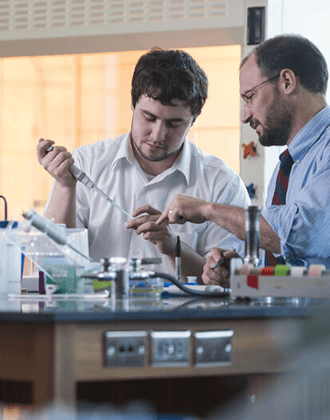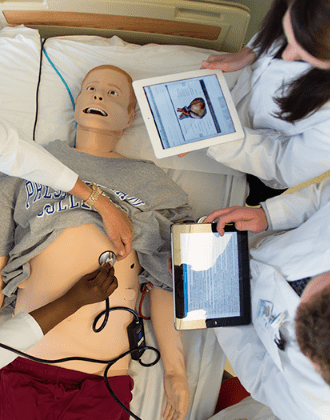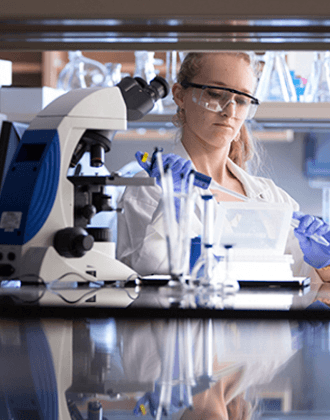- Approximately 95 percent of PC educators remain in the teaching profession after three years, compared to the national average of 50 percent.
- PC math majors have completed summer research through nationally recognized programs at Rutgers, Johns Hopkins, and Research Experiences for Undergraduates.
- Math majors who complete 14 first-year hours in math are eligible for both the Palmetto Fellows and LIFE scholarships.
- PC’s state-approved Teacher Education Program is accredited by the National Council for Accreditation of Teacher Education/Council for the Accreditation of Educator Preparation.
WHAT YOU’LL STUDY
As a math education student, you develop valuable skills such as analysis, problem-solving and statistical computing. You hone the ability to communicate in speech and writing. And you learn how to prepare and present lessons appropriate for high school math classrooms.
Your degree program, a rigorous combination of math and education courses, totals 72 hours. Math requirements make up 32 of those hours. During your first two years, you’ll take courses like Calculus I-IV, Data Analysis, and Transition to Advanced Mathematics. Upper-level coursework includes Linear Algebra, Discrete Math with Graph Theory, Modern College Geometry, and Abstract Algebra. Two final courses – Senior Capstone in Teaching Math and Senior Seminar in Teaching Math – close out your math program.
The remaining 40 hours of coursework comes from the secondary education curriculum. Lower-level courses include Introduction to Education as well as Teaching Culturally and Linguistically Diverse Students. After your acceptance into the teacher education program, you’ll take upper-level courses like Content Area Literacy and Introduction to Special Education. After a series of practicum experiences in local schools, you’ll conclude the program with student teaching during your final semester. By then, you should be little more than a Praxis test away from applying for your teaching credential.
MORE INFORMATION
- Course Requirements »
- EDUC Course Descriptions »
- EDEC Course Descriptions »
- EDEL Course Descriptions »
- EDMS Course Descriptions »
- EDSD Course Descriptions »
- SPED Course Descriptions »
- CO = Co-requisite
- CO = Co-requisite
- POI = Permissions of Instructor
- PR = Pre-requisite
- RE = Recommended
- XL = Cross-listed
CAREER OUTCOMES
The program’s emphasis on secondary education enables graduates to teach high school math. Those who pursue an advanced degree also have the opportunity to teach at the college or university level.
Math teacher salaries vary by location, education level, and years of experience. According to the Bureau of Labor Statistics, the median salary for high school teachers in May 2019 was $61,660. For college and university math professors, BLS reported an average salary of $84,710 in May 2017.
PC math majors enter a wide variety of fields – including education. Many alumni work as math teachers and professors in schools throughout the world. Others are pursuing graduate work in the fields of mathematics, statistics, actuarial science, and civil engineering. You’ll also find recent graduates practicing in medicine, dentistry, law, economics, genetics, and environmental science. Many now hold terminal degrees such as MD, DDS, JD, and PhD in their respective fields.
No matter your major, PC’s liberal arts education prepares you with critical thinking and other soft skills that employers value.
CAREER PROFESSIONS
Check back soon





